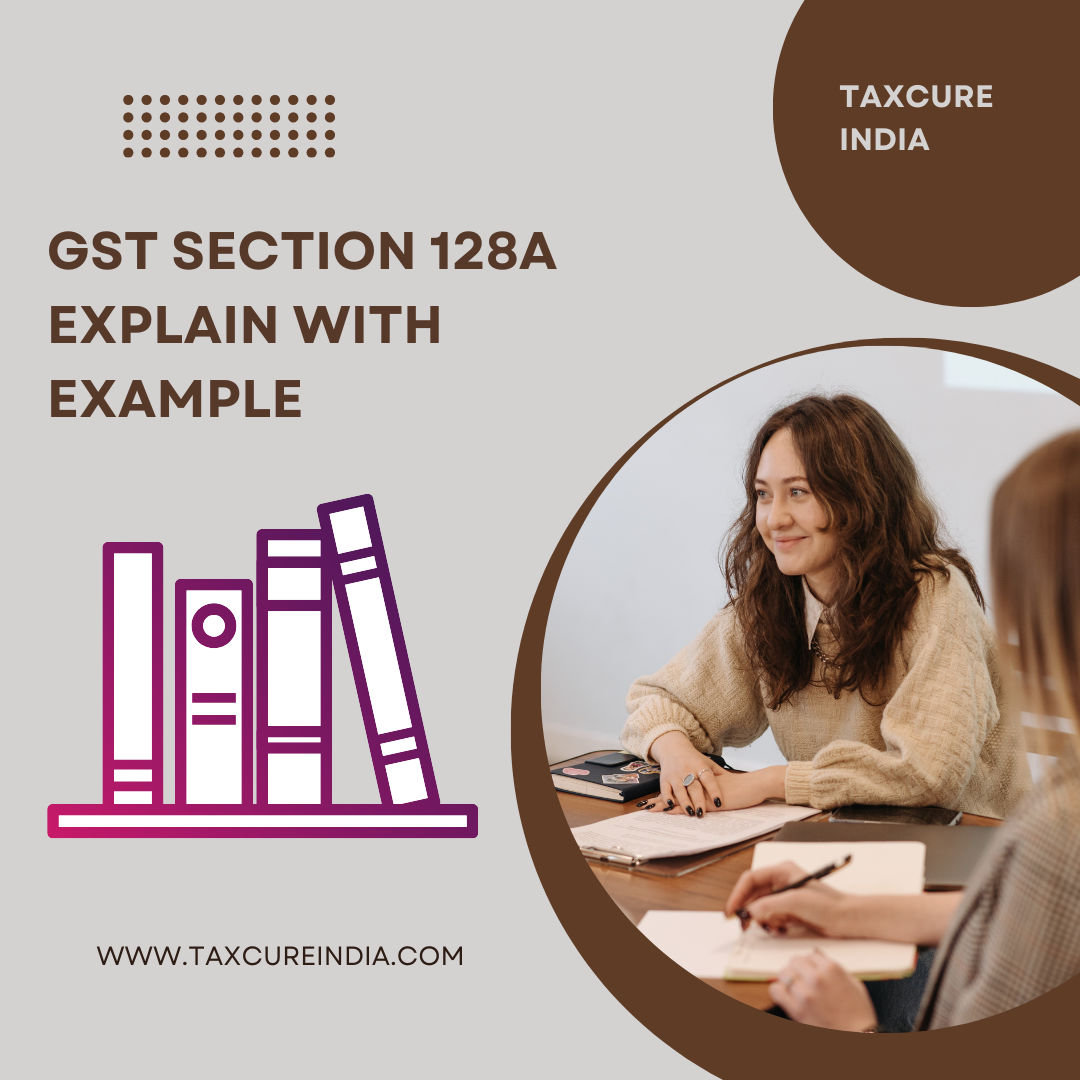Understand GST Section 128A and its waiver scheme for late fee penalties. Learn how it benefits taxpayers with detailed explanations and practical examples.
GST Section 128A Explain with Example
Key Provisions of GST Section 128A
- Power to Waive Late Fee: The government can issue notifications to waive or reduce late fees payable for delayed filing of GST returns.
- Applicability
- Typically applies to forms like GSTR-3B, GSTR-1, GSTR-4, GSTR-9, etc.
- Specific conditions and deadlines are prescribed in the notification for availing the waiver.
- Common Conditions for Availing Waiver
- Return filing must be completed within a stipulated time mentioned in the notification.
- Waiver may apply fully or partially, depending on the duration of delay.
- Objective
- To provide relief to taxpayers facing genuine hardships.
- To encourage timely compliance going forward.
Also Read : – Understanding HSN Code Requirements in GSTR-1 and GSTR-1A Reporting
Example of Waiver Scheme
Scenario
Mr. Sharma, a small business owner, was unable to file his GSTR-3B returns for the months of July 2023 to September 2023 due to financial difficulties. According to GST law, a late fee of ₹50 per day (₹25 CGST + ₹25 SGST) is applicable for delayed filing of GSTR-3B, capped at ₹5,000 per return.
Notification Issued
The government, under Section 128A, issued a notification stating
- Late fees for filing GSTR-3B for the period July 2023 to September 2023 will be waived if returns are filed between January 1, 2024, and January 31, 2024.
Application
- Mr. Sharma files all his pending returns on January 15, 2024.
- Since he complied within the notified timeline, the late fee applicable for the delayed period is completely waived.
Without Waiver
If Mr. Sharma had not availed the scheme:
- For a 90-day delay (approx.), he would have paid a late fee of ₹50/day × 90 days = ₹4,500 per return.
- For 3 returns, the total late fee would amount to ₹13,500.
With Waiver
By filing within the specified window, Mr. Sharma’s late fee liability becomes ₹0.
Also Read :- Essential Restrictions on Filing Updated Returns Under Section 139(8A)
Steps for Taxpayers to Avail Waiver Under Section 128A
- Check Notifications: Review the specific government notifications for waiver applicability, timelines, and conditions.
- File Returns on Time: File the pending returns within the stipulated waiver period to avoid late fees.
- Reconcile Records: Ensure all invoices and data are accurately reconciled to avoid errors in return filing.
- Consult Professionals: If in doubt, seek assistance from a tax advisor to comply within the waiver scheme.
Conclusion
The waiver scheme under Section 128A offers much-needed relief for taxpayers who have faced difficulties in timely compliance. Taxpayers should stay updated on notifications to take advantage of such benefits and ensure compliance to avoid penalties in the future.

